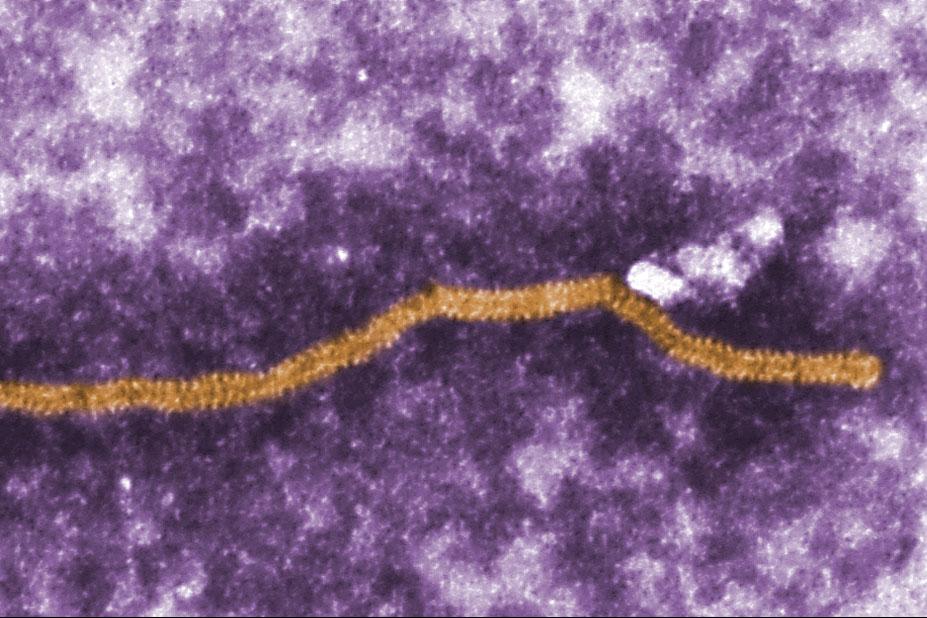A new collaboration between the The Pirbright Institute and the UK Health Security Agency (UKHSA) has been initiated to support the development of vaccines against a group of lethal viruses.
Researchers will address the threat of outbreaks caused by previously unknown or emerging henipaviruses, akin to the way SARS-CoV-2 emerged to spark the Covid-19 pandemic in 2019.
Henipaviruses, such as Nipah (NiV) and Hendra virus (HeV), can induce severe, and often fatal, encephalitis and respiratory diseases in both humans and animals. While these are known henipaviruses, there is a high probability of a yet-unidentified member of this viral family triggering an epidemic.
The project titled ‘Defining the success criteria for pan-henipaviruses’ is funded by the Medical Research Council and led by Dr Stephen Findlay-Wilson at the UKHSA in collaboration with The Pirbright Institute. The project aims to urgently develop comprehensive pan-henipavirus vaccines capable of providing cross-protection against various related viruses.
Given promising pre-clinical data but the absence of licensed vaccines for NiV, the project seeks to unravel the parameters for pan-henipavirus vaccines, addressing the crucial need to understand if vaccination can offer cross-protection, especially in the initial stages of a henipavirus outbreak.
The work will also tackle challenges in conducting clinical trials for NiV, due to the low annual occurrence of infections, which primarily occur in Bangladesh, through spillover from fruit bats.
Dr Dalan Bailey, Viral Glycoproteins group leader and project lead for Pirbright says “Understanding whether vaccines for Nipah or other henipaviruses can provide cross-protection against related viruses is an important first step in the development of broadly acting vaccines. This is especially important as we try to build more robust pandemic preparedness plans in the wake of the Covid-19 pandemic, and we are delighted to be working with UKHSA on this project”.
Professor Isabel Oliver, Chief Scientific Officer at UKHSA says “This study will deepen our understanding of henipaviruses and make significant progress in our efforts to protect health from this current and future global health threat. The work will also make a vital contribution to the 100 Days Mission - an important initiative to make sure the world is better prepared for the next pandemic by accelerating the development of diagnostics, therapeutics and vaccines.”
Successful outcomes from this project can enhance pandemic preparedness, providing critical data on the feasibility and effectiveness of pan-henipavirus vaccines. The ultimate goal is to insulate against potential epidemics caused by emerging henipaviruses, particularly in regions like South Asia and Australasia, and contribute to global efforts in tropical disease prevention.
